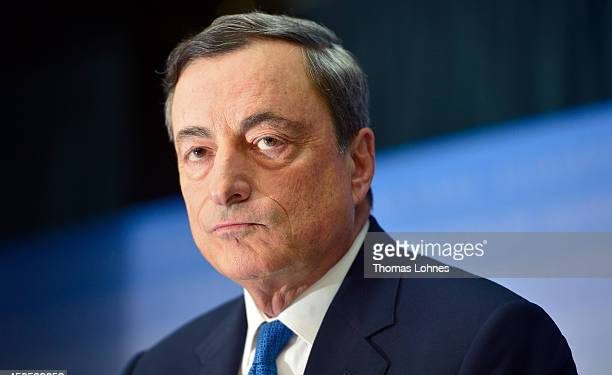Prime Minister Mario Draghi on Thursday said he will resign amid a political crisis in Italy.
Draghi survived a no-confidence vote in the Italian Senate Thursday, yet his government’s future was thrown into question due to a boycott of the vote by the populist 5-Star Movement (5SM), a key coalition ally.
5SM parliamentarians refused to participate in the vote over opposition to parts of a relief bill for skyrocketing energy prices that the confidence vote had been linked to.
Draghi won the vote 172-39 but the 5SM boycott represents a clear threat to his government.
The former head of the European Central Bank (ECB), Draghi became Italy’s sixth prime minister in 10 years when he took over from Giuseppe Conte of 5SM in February 2021.
Draghi has clearly stated that 5SM is a coalition partner in his unity government and that he has no intention of governing without them.
5SM leader Conte announced the boycott Wednesday, leading to speculation that Draghi may in fact hand in his resignation over the betrayal.
 Former PM Giusppe Conte of 5SM has refused to back down in his opposition to Draghi, who replaced him in February 2021
Former PM Giusppe Conte of 5SM has refused to back down in his opposition to Draghi, who replaced him in February 2021
5SM, shedding members and losing support, risks prompting political crisis
5SM has been shedding members and its leadership has come under fire from across the political spectrum for its opposition to a bill that would, among other things, allow Rome to build a garbage incinerator outside the city to deal with its massive refuse problems. Other elements of the bill include a reduction of gas and diesel taxes, as well as utility bill relief for consumers.
Despite high-profile defections — such as Foreign Minister Luigi di Maio, who left 5SM to form his own party — Conte has refused to give in on the issue.
Other coalition members railed against Conte’s stance during parliamentary debate. Liberal Senator Emma Bonino, said being in government, “is not like picking up a menu and deciding, antipasti, no; gelato, yes.”
Though 5SM was the largest winner in 2018 elections, the rancorous outfit has been fast-losing parliamentarians as well as public support.
In terms of foreign policy and geopolitics, Draghi has evolved into a key figure on the European political stage as Russia’s invasion of Ukraine has turned up pressure on the bloc to act.
To run Draghi out of office now risked, “the destabilization of Europe,” railed Antonio Saccone — an ally of former Prime Minister Silvio Berlusconi. Saccone thundered against members of 5SM, saying, “You’d be doing [Russian President Vladimir] Putin a favor.”
Domestically, Draghi’s presence has benefited Italy — the third-largest economy in the Eurozone — in the eyes of the European Union and the ECB, which tightened monetary policy toward Italy over its debt and political instability.
Draghi, a known quantity with a reputation for pragmatism not often seen in Italian politics, has largely been regarded as a guarantor that Italy would abide by EU and ECB rules.
He has also been able to push through some of the reforms the EU has said must be put in place before it provides €200 billion ($200 billion) in pandemic recovery assistance. Should he in fact step down, that assistance may not materialize.
Markets reacted skittishly to the Thursday vote, with shares falling and Italian bond yields rising significantly.
Observers fear that Draghi’s departure from office would cast the country back into political uncertainty.
 Draghi (l) has become a key figure on the European political stage, critics say his departure would be ‘destabilizing’
Draghi (l) has become a key figure on the European political stage, critics say his departure would be ‘destabilizing’
New elections for Italy sooner than later?
Italians are scheduled to head to the polls in early 2023 but Thursday’s vote could quickly change that.
Should Draghi submit his resignation, President Sergio Mattarella could accept or reject it, request Draghi address parliament with a formal vote of confidence in the government, or dissolve parliament and call for elections as early as September.
Draghi enjoys the backing of a broad range of political parties and almost of of the country’s main players. There is one notable exception, however, the far-right Brothers of Italy party, which has been riding a wave of increasing popularity. The Euroskeptic, nationalist party has demanded Mattarella dissolve the government and call new elections.
Draghi headed straight to President Mattarella’s office at the Quirinal after the Thursday vote to chart a course for the next steps to be taken. After the hour-long meeting, Draghi’s office announced that he had called a Cabinet meeting for Thursday evening.
Italian news agency ANSA reports that the 74-year-old did not offer his resignation and will use the Cabinet meeting to determine if and how to continue governing.









Discussion about this post